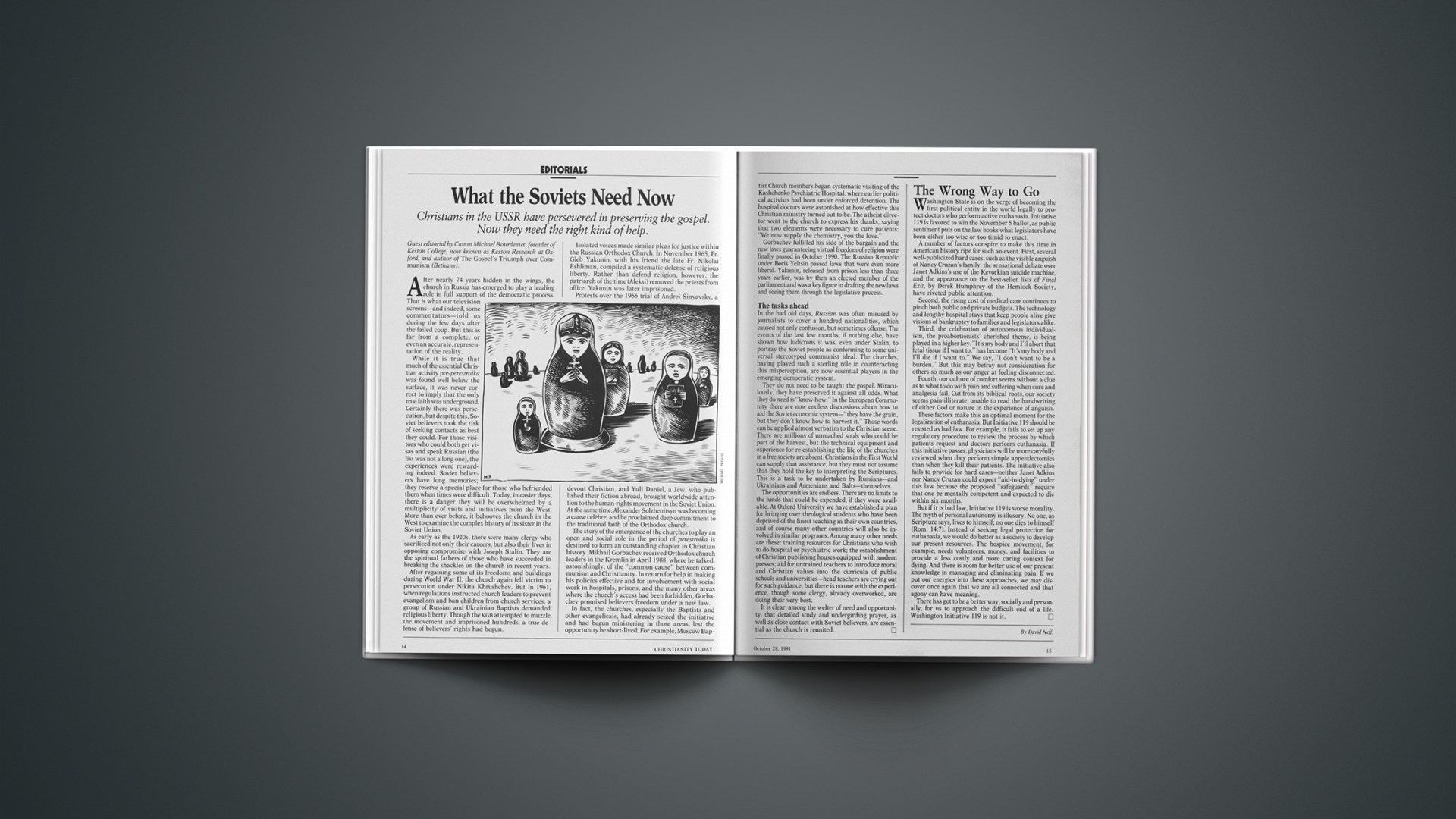Washington State is on the verge of becoming the first political entity in the world legally to protect doctors who perform active euthanasia. Initiative 119 is favored to win the November 5 ballot, as public sentiment puts on the law books what legislators have been either too wise or too timid to enact.
A number of factors conspire to make this time in American history ripe for such an event. First, several well-publicized hard cases, such as the visible anguish of Nancy Cruzan’s family, the sensational debate over Janet Adkins’s use of the Kevorkian suicide machine, and the appearance on the best-seller lists of Final Exit, by Derek Humphrey of the Hemlock Society, have riveted public attention.
Second, the rising cost of medical care continues to pinch both public and private budgets. The technology and lengthy hospital stays that keep people alive give visions of bankruptcy to families and legislators alike.
Third, the celebration of autonomous individualism, the proabortionists’ cherished theme, is being played in a higher key. “It’s my body and I’ll abort that fetal tissue if I want to,” has become “It’s my body and I’ll die if I want to.” We say, “I don’t want to be a burden.” But this may betray not consideration for others so much as our anger at feeling disconnected.
Fourth, our culture of comfort seems without a clue as to what to do with pain and suffering when cure and analgesia fail. Cut from its biblical roots, our society seems pain-illiterate, unable to read the handwriting of either God or nature in the experience of anguish.
These factors make this an optimal moment for the legalization of euthanasia. But Initiative 119 should be resisted as bad law. For example, it fails to set up any regulatory procedure to review the process by which patients request and doctors perform euthanasia. If this initiative passes, physicians will be more carefully reviewed when they perform simple appendectomies than when they kill their patients. The initiative also fails to provide for hard cases—neither Janet Adkins nor Nancy Cruzan could expect “aid-in-dying” under this law because the proposed “safeguards” require that one be mentally competent and expected to die within six months.
But if it is bad law, Initiative 119 is worse morality. The myth of personal autonomy is illusory. No one, as Scripture says, lives to himself; no one dies to himself (Rom. 14:7). Instead of seeking legal protection for euthanasia, we would do better as a society to develop our present resources. The hospice movement, for example, needs volunteers, money, and facilities to provide a less costly and more caring context for dying. And there is room for better use of our present knowledge in managing and eliminating pain. If we put our energies into these approaches, we may discover once again that we are all connected and that agony can have meaning.
There has got to be a better way, socially and personally, for us to approach the difficult end of a life. Washington Initiative 119 is not it.
By David Neff.










